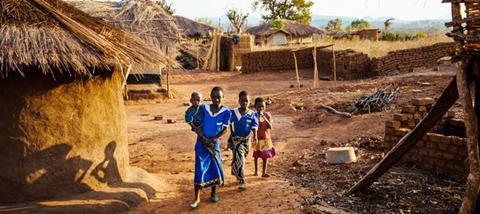
I remember a few years ago walking to the train station and seeing a teenage boy lying on the pavement on the other side of the road. He was moaning and had blood on his face. I had a train to catch, and we all know the stories of ‘good samaritans’ being beaten up themselves. So I nearly walked on...
But there was something that stopped me, something that stirred within me. And it was that image of a person in immediate need and my choice to stop and help, or walk away. He wasn't badly hurt, the cut was under his eye but he could see. I checked he was alright and he said he wanted to go home. It was a friend who had punched him but they had come back to help him. I said I would call the police but the guy who was hurt didn’t want that. They walked away together.
It felt good. Like I’d made the right choice and, despite my fears, I didn’t get hurt. I didn’t pass on the other side. I showed (a little bit) of mercy. I’d passed the ‘samaritan test’.
But it’s foolishness to take Jesus’ parables too literally. The Parable of the Sower isn’t the first century equivalent of Gardener’s Question Time, and the Lost Coin isn’t advice about how to locate missing currency. Similarly, The Good Samaritan is not about helping people lying injured in the street. It’s about what we do when confronted with those in need. It’s about our character. About integrity. And it’s about justice.
Who is your neighbour?
I’m going to tell you about Sylvia from Malawi. And I’m sorry, it might make you feel uncomfortable, because you will have to make a choice.
I met Sylvia and her family on a recent visit with Tearfund, who I work for. She lives in a pretty remote village in the centre of the country called Chirambi. Malawi is currently in a state of emergency because they’ve had the worst drought for more than 30 years. You might ask why you haven’t heard about this and why it’s not been reported on the news in the UK. That’s a bigger problem. But now you know.
Sylvia’s husband left her a few months ago, she has four children to take care of and an elderly mother to support. But her harvest failed this year. The family needs more than a dozen bags of maize to last until the next harvest. But in the current dry conditions, Sylvia only harvested three bags. And now they have just one left.
When I ask her what she will do, Sylvia tells me, "I try to find work in the village but there is not enough. I know that soon we will run out of food completely."
Hunger has attacked Sylvia’s family. It has stripped them of all they have and left them for dead. "We pray every night for there to be food tomorrow," Sylvia tells me. "We pray to God that he would give us good rains so that the next day we can have enough food."
When she told me her story, I felt that same stirring as I did on my walk to the train station. I could choose to walk away or walk with Sylvia – offer what I can to help her, to bind up her wounds, give what I have in my hands and make sure she is looked after.
At that moment God asked me, once again, "Who is your neighbour?" He may be asking you the same.
Peter Shaw is a Senior Editor at Tearfund. For more on Sylvia and her village, please visit premierchristianradio.com/tearfund
Click here to request a free copy of Premier Christianity magazine




























